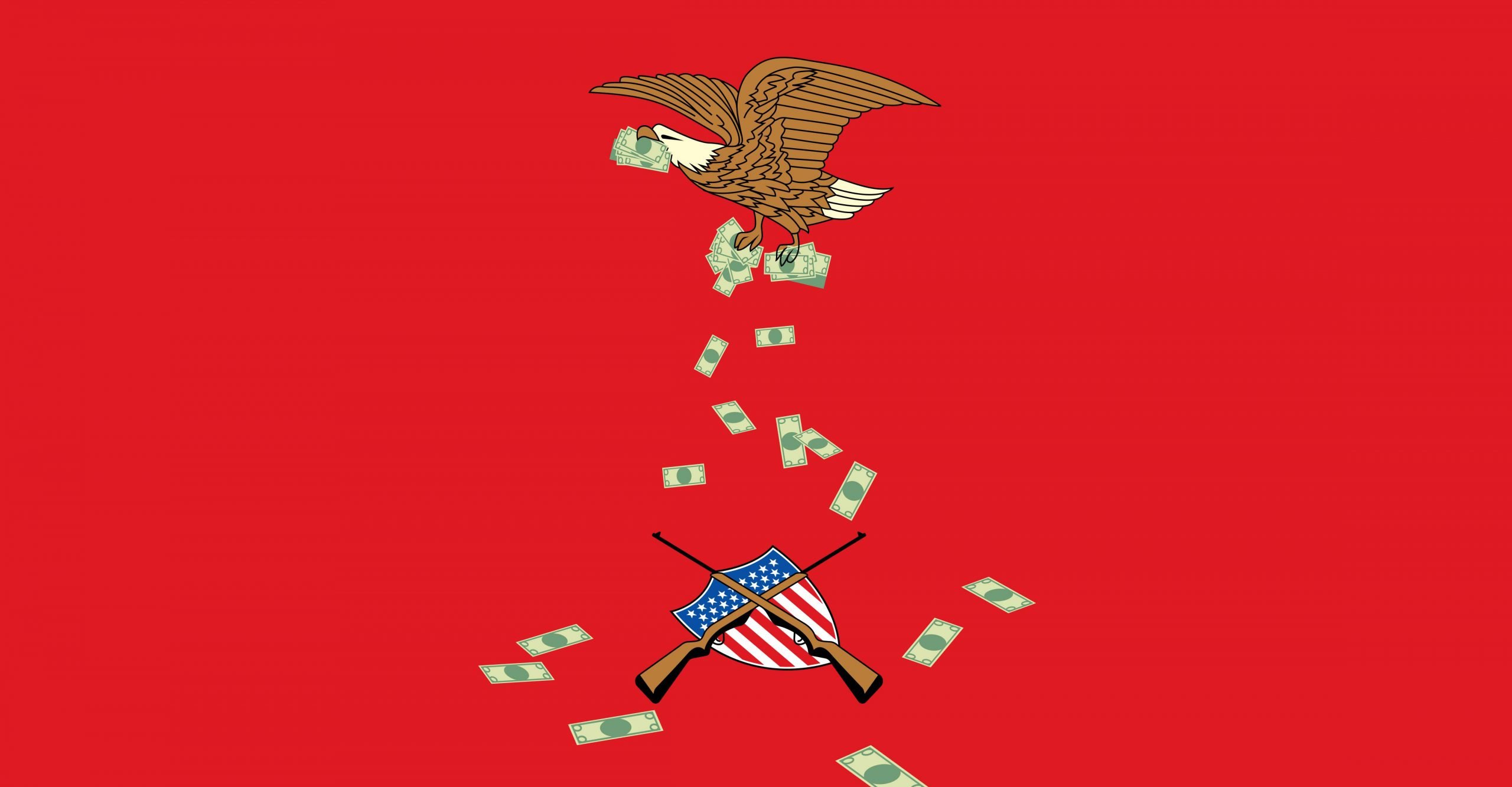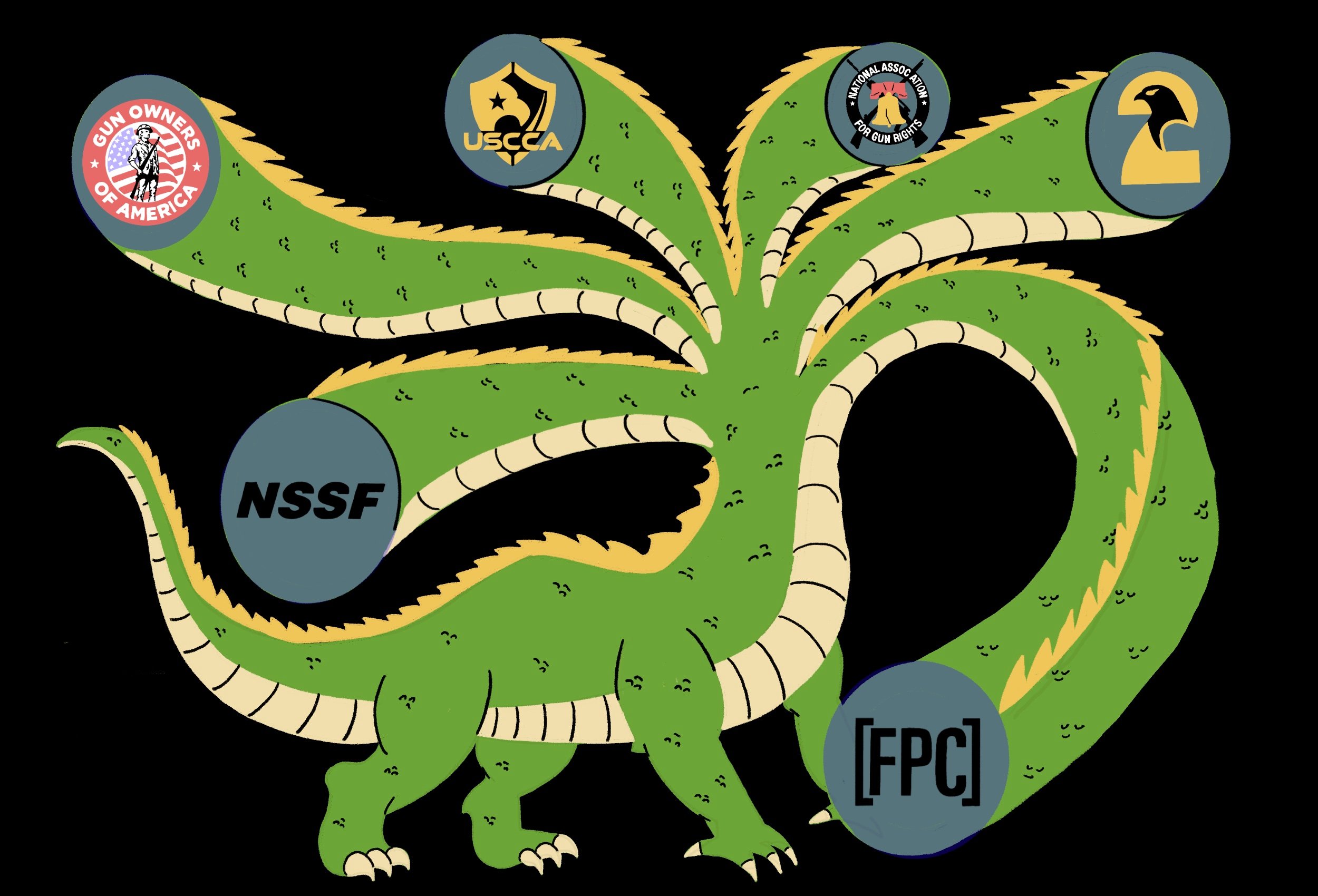Wayne LaPierre, the National Rifle Association executive known for his fiery speeches, survived a challenge to his leadership after a contentious weekend dominated by debate about the organization’s financial practices.
On Monday afternoon, LaPierre was “unanimously” re-elected as the NRA’s executive vice president during a closed-door meeting of the organization’s board.
The meeting capped a tumultuous Indianapolis convention consumed by a public power struggle between top executives. First, LaPierre alleged he was being extorted and pressured to resign by Oliver North, the NRA president. Within 24 hours, North announced his own resignation, claiming that his efforts to probe financial malfeasance had been stamped out. And by mid-day Saturday, news broke that the New York attorney general had launched an investigation into the NRA’s nonprofit status, a potentially fatal blow for the organization.
Nonetheless, LaPierre held onto power. Prominent gun rights advocates and some NRA members had hoped that LaPierre would be ousted as a step toward more sweeping management reforms. LaPierre’s re-election is likely to inflame criticism that the NRA’s leaders are not doing enough to rescue the group from the edge of financial ruin. Even President Donald Trump tweeted that the NRA “must get its act together quickly.”
The board also selected Carolyn Meadows, a longtime NRA insider and LaPierre ally, to replace North in the mostly ceremonial role of president. Meadows had praised LaPierre’s leadership during a speech on Saturday, telling NRA members gathered at the Indiana Convention Center that he had achieved some of the organization’s greatest victories.
“He’s taken on anti-gun presidents, senators, congressmen, and every lying con artist in the national media,” Meadows said, drawing rapturous applause. As a result, she said, “Our Second Amendment rights have risen from the brink of extinction to one of the most protected freedoms in the Constitution.”
The leadership turmoil followed an investigation, co-published by The Trace and The New Yorker, that exposed widespread financial impropriety at the NRA. Through internal memos and state documents, Trace staff writer Mike Spies documented how the group’s leadership and preferred vendors had extracted hundreds of millions of dollars from the nonprofit’s budget.
On Thursday, LaPierre sent a letter to the board accusing North of pressuring him to resign by threatening to release damaging information about the NRA’s financial status and other issues. Still, the following day, both LaPierre and North took the stage at the NRA-ILA Leadership Forum, the convention’s marquee event, featuring a star-studded cast of conservative speakers, including Trump.
But on Saturday, North failed to appear, and Robert Childress, the NRA’s first vice president, read a letter in which North said he had established a “crisis management committee” to examine the allegations of financial mismanagement put forth in recent media reports. If those allegations proved true, North wrote, “the NRA’s nonprofit status could be threatened.”
At the same meeting, a group of disillusioned members threw their support behind a resolution expressing “disappointment, frustration, and lack of confidence” in LaPierre and other leaders involved in the NRA’s finances and operations. The resolution touched off an impassioned debate about the risks of airing the NRA’s troubles in public, with many expressing worry that the details could be used against the organization in court.
Of particular concern was Attorney General Letitia James of New York, who had promised to investigate the NRA’s nonprofit status while campaigning for the office last year. Members seemed worried that James might soon follow through — and they were right. Later that day, The New York Times reported that James’s office had asked the NRA, its charitable foundation, and other affiliates to preserve financial records.
“There’s a very vicious attorney general and governor in New York state who is going after the NRA and everything it stands for,” Tom King, an NRA board member, told members at Saturday’s meeting. “We don’t want to give the other side any more information than they’ve already got.”
North’s departure, and the subsequent debate, caught many members by surprise. By Sunday, even those who rarely paid much attention to the organization’s politics had taken notice of the rift. “The allegations and counter-allegations are shocking — and kind of radical sounding,” said Ned Christiansen, a longtime member from Michigan, as he left the convention center with his wife. “I don’t know what to believe.”
Some NRA board members, approached by journalists on the convention floor, called for financial accountability. “One of the key things we need to have is an internal audit system within the National Rifle Association,” Allen West, a retired military official and former congressman, told Stephen Gutowski of the Washington Free Beacon. “It’s very important that the board reassert more of its control and power based upon the bylaws, so that we don’t have any of these, you know, surprises that pop up.”
West’s call was backed up by Ted Nugent, among the NRA’s most controversial board members. “We need total transparency and accountability to the only important element of the NRA, and that is we the people membership,” Nugent told Gutowski. “Total transparency, open all the books, make sure we know how these hard-earned dollars of the members are being spent and that they’re being spent effectively.”
Many of the allegations of financial wrongdoing center around Ackerman McQueen, the Oklahoma-based public relations firm central to the gun rights group’s messaging. Under LaPierre’s leadership, Ackerman’s influence over the NRA has grown significantly. One internal memo obtained by The Trace states that roughly a quarter of the NRA’s staff is “now managed by former employees” of Ackerman.
That’s why insiders were shocked when, on April 12, the NRA sued Ackerman. The lawsuit alleges that Ackerman had withheld paperwork to back up its billings. It also claimed Ackerman failed to disclose that it was paying North more than a $1 million a year.
It’s not the first time that LaPierre’s relationship with Ackerman has led to infighting. In late 1996, the NRA board’s finance committee determined that the group had taken on significant debts and had been “technically insolvent for several years.” The culprit, the committee determined, was LaPierre’s excessive spending on public relations with Ackerman, often without a written contract in place. Promising reforms, LaPierre transferred the NRA’s business with Ackerman to another company — which board members soon discovered was a wholly owned subsidiary of Ackerman.
The following year, Neal Knox, a board member and former lobbyist, launched a bid for the NRA’s presidency in an effort to remove LaPierre. Knox was narrowly defeated by Charlton Heston, who had been recruited by LaPierre and his allies. In 1998, a group of board members delivered a cache of documents to the Federal Election Commission urging action against the NRA’s executives. Two decades later, many of those executives, including LaPierre, remain in power.
Editor’s note: The headline of this article was changed to reflect developments that suggest the vote for LaPierre’s re-election was not unanimous.



